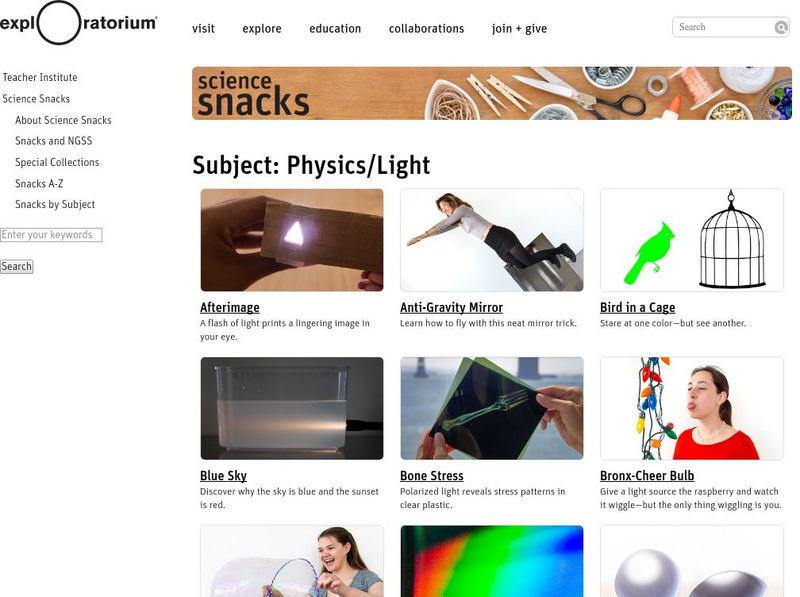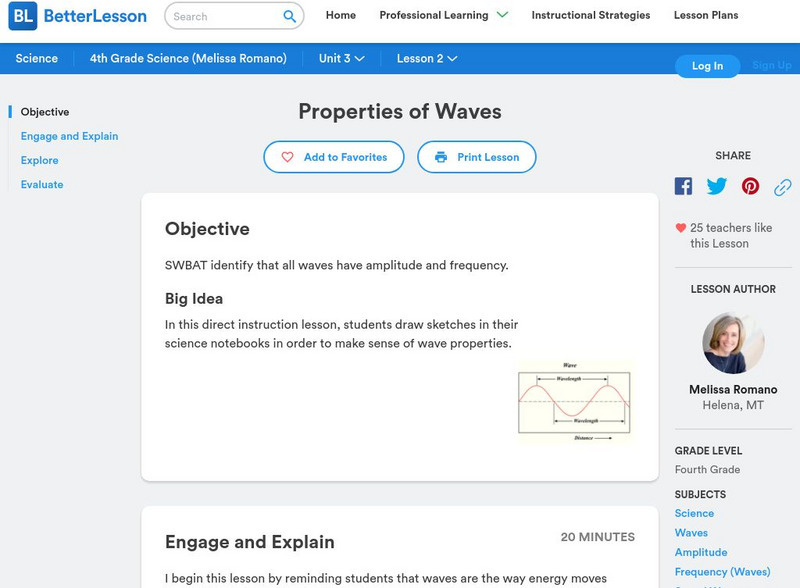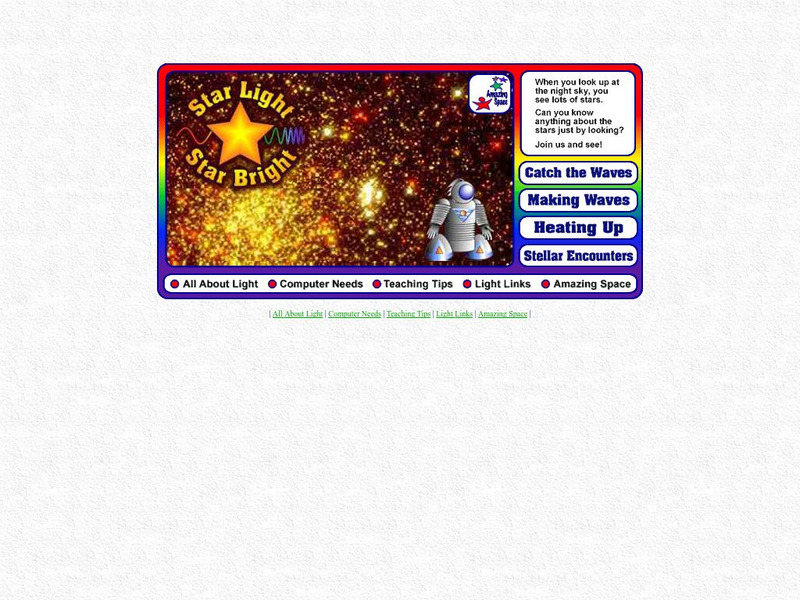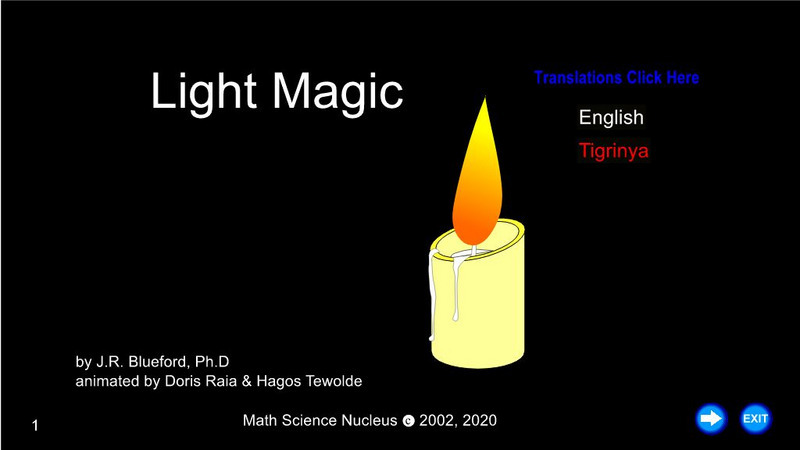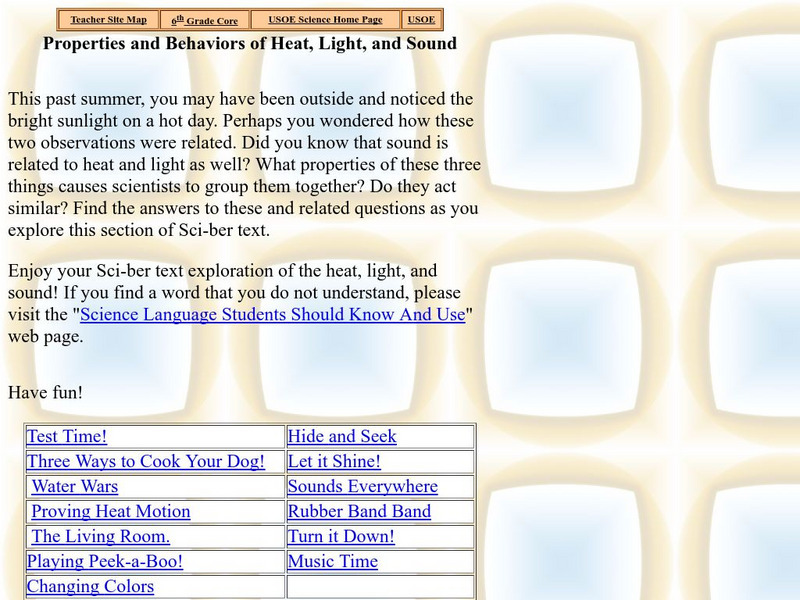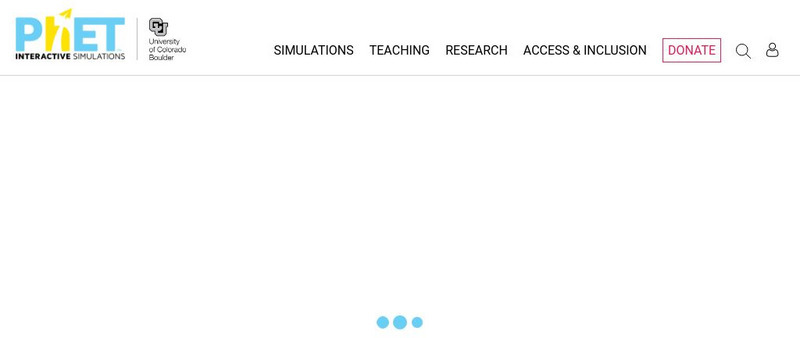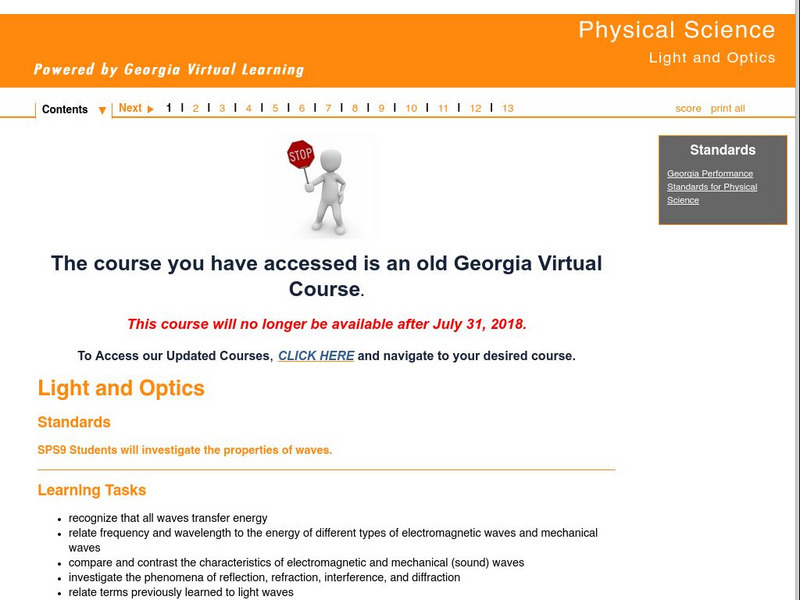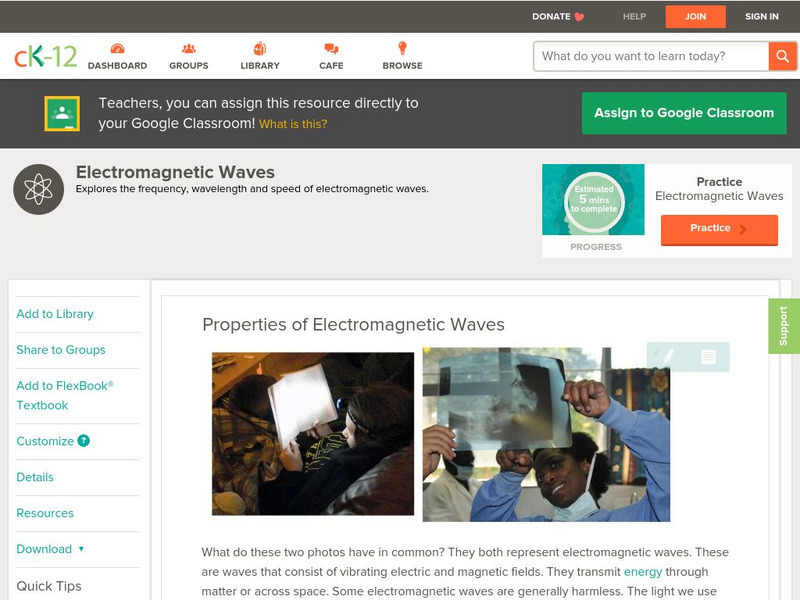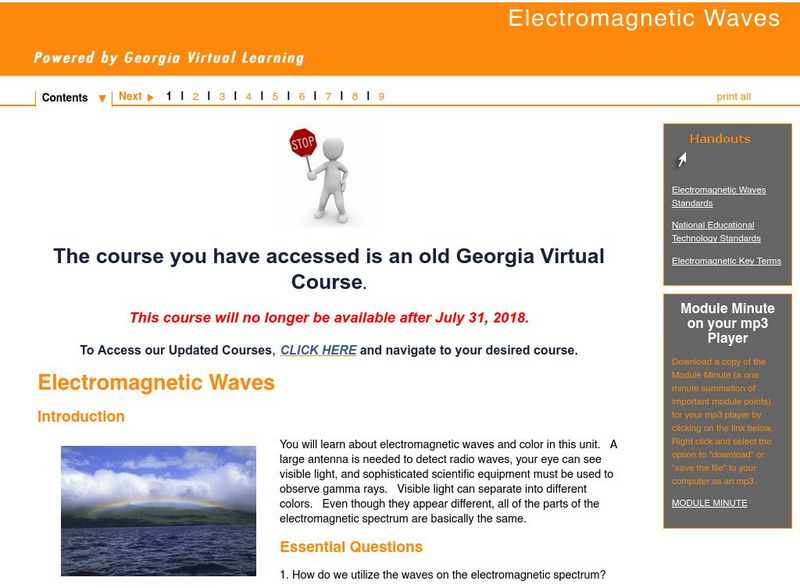Curated OER
Automated Vehicle Programming Design
Young scholars design a program to make an automated vehicle perform a specific task. For this robotics lesson, students play the role of scientists competing to win a factory's contract. They present their algorithm to class.
Curated OER
Life of Thomas Edison
Students research the life of Thomas Edison. In this Thomas Edison lesson, students explore major life events of Thomas Edison. Students investigate the inventions of Thomas Edison. Students discover how various fields of study interact...
Curated OER
Investigation of Timbre
Learners design an experiment to analyze the timbre of different instruments. In this physics lesson, students analyze the missing quality in sound. They discuss their results in class.
Curated OER
Investigation of Hooke's Law Lab
Young scholars determine the spring constant by conducting an investigation. In this physics lesson, students collect data and create a graph of force vs. displacement. They compare the results of two different methods to find spring...
Curated OER
Creatures That Glow In The Night
Students investigate the different bioluminescent organisms. They use microscopes in order to make observations and draw what is seen. Students demonstrate they have studies the differences between the process of photosynthesis and...
Curated OER
Grating Spectrometer
Students calculate the Balmer series. In this physics activity, students observe hydrogen lamp spectra using spectrometers. They calculate wavelength and compare them with their theoretical calculations.
Curated OER
Characterization in The Ponder Heart:A Collaborative Speaking Unit
Students assess fellow student's oral narrative tales. They discuss the attributes that marked the "best" narratives. They compose their own narrative tales and interview family members. They make a final speaking presentation to the...
Exploratorium
Exploratorium: Science Snacks: Physics/light
Here is a large collection of simple science class activities for understanding the physics of light.
Better Lesson
Better Lesson: Properties of Waves
For this direct instruction lesson, students draw sketches in their science notebooks in order to make sense of wave properties. Resources include a slideshow presentation on the properties of waves and multiple examples of student work.
Space Telescope Science Institute
Amazing Space: Star Light Star Bright
A few short, interactive activities on light waves can be found on this site. Numerous others links and teacher resources are posted here as well. A good background on light is offered for teachers.
Math Science Nucleus
Math/science Nucleus: Light Magic
This animation discusses light and the properties of light in a storybook format. The animations cover the colors of the rainbow (ROYGBIV) along with prisms, light waves, reflection, and refraction.
CK-12 Foundation
Ck 12: Physics: Wave Optics Study Guide
A study guide for concepts related to wave optics.
Utah State Office of Education
Utah Science: Properties and Behaviors of Heat, Light and Sound
How can scientists lump heat, light and sound together when investigating properties and behaviors? This learning module will address that question through a series of activities.
PBS
Pbs Learning Media: What Is a Wave?
This interactive activity adapted from the University of Utah's ASPIRE Lab provides an overview of the characteristics and properties of various types of waves, including light waves, sound waves, and water waves.
BBC
Bbc: Gcse Bitesize: Why Do Scientists Think That Light and Sound Are Waves?
Light travels as transverse waves and can travel through a vacuum. Sound travels as longitudinal waves and needs to travel through a solid, liquid or gas. Read about the properties of light and of sound, and learn the differences between...
TeachEngineering
Teach Engineering: Waves: The Three Color Mystery
Students are presented with a challenge question concerning color blindness and asked to use engineering principles to design devices to help people who are color blind. Using the legacy cycle as a model, this unit is comprised of five...
BBC
Bbc: Gcse Bitesize: General Properties of Waves
Light travels as waves. Waves can be described by their amplitude, wavelength and frequency. The speed of a wave can be calculated from its frequency and wavelength.
University of Colorado
University of Colorado: Ph Et Interactive Simulations: Wave Interference
Conduct virtual experiments with water, sound, and light waves to determine the sine wave and patterns created in each.
Georgia Department of Education
Ga Virtual Learning: Physical Science: Light and Optics
Students will investigate the properties of light waves. They will learn about the different types of electromagnetic waves and mechanical waves, and investigate the phenomena of reflection, refraction, interference, and diffraction.
Museum of Science
The Atom's Family: Radiometer
Help Dracula find out about light waves by using a virtual radiometer.
CK-12 Foundation
Ck 12: Physical Science: Properties of Electromagnetic Waves
[Free Registration/Login may be required to access all resource tools.] The speed of electromagnetic waves, their wavelengths and frequencies and how to calculate wavelength or wave frequency.
TeachEngineering
Teach Engineering: Learning Light's Properties
Middle schoolers learn the basic properties of light--the concepts of light absorption, transmission, reflection and refraction, as well as the behavior of light during interference. Lecture information briefly addresses the...
Georgia Department of Education
Ga Virtual Learning: Electromagnetic Waves
Through informational text, interactive activities, practice problems, and virtual simulations, students explore the properties of electromagnetic waves.
TeachEngineering
Teach Engineering: Stations of Light
Student groups rotate through four stations to examine light energy behavior: refraction, magnification, prisms and polarization. They see how a beam of light is refracted (bent) through various transparent mediums. While learning how a...









